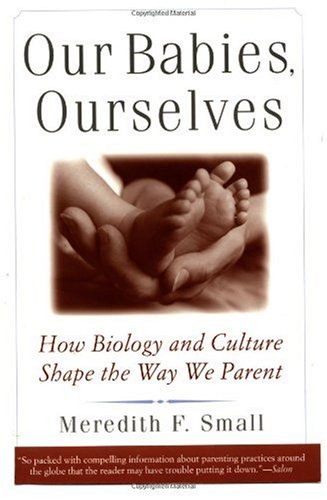The Invention of "Insufficient Milk Syndrom"
Even when women do decide to breast-feed, they sometimes feel they are thwarted by their own bodies. "Insufficient milk" is cited as a major reason women in the West terminate breast-feeding after a few days or weeks. The syndrome is fascinating because it is a clear example of a disease being "invented," defined, and then perpetuated by culture at large. In only about 5 percent of the cases is there something making it physically impossible for a woman to breast-feed. Before bottle-feeding came into vogue, women rarely, if ever, reported a lack of milk. But when breast-feeding went out of fashion in the 1940s, this new syndrome appeared. The real cause of insufficient-milk syndrome appears to be a confluence of social changes—hospitals took over the birth process and separated newborns from their mothers, doctors recommended interval feeding, and artificial formula presented a reasonable alternative. It is interesting to note that insufficient-milk syndrome appears only in Western industrial nations and has yet to be found in other cultures. Why do so many women in affluent countries say they have no milk for their babies?
Notes:
A problem that did not exist before the introduction of bottle-feeding.
Folksonomies: psychology normality social norms
Taxonomies:
/family and parenting/babies and toddlers (0.580565)
/health and fitness/disease (0.328901)
/food and drink/food allergies (0.303726)
Keywords:
Insufficient Milk Syndrom\ (0.917692 (negative:-0.423165)), Western industrial nations (0.726261 (negative:-0.284114)), insufficient-milk syndrome (0.721252 (negative:-0.353602)), Insufficient milk\ (0.669698 (negative:-0.549471)), West terminate (0.629988 (negative:-0.608955)), major reason (0.611951 (negative:-0.608955)), clear example (0.605106 (neutral:0.000000)), affluent countries (0.601159 (negative:-0.669283)), interval feeding (0.597629 (neutral:0.000000)), reasonable alternative (0.592814 (positive:0.446656)), artificial formula (0.586216 (positive:0.446656)), real cause (0.586028 (negative:-0.423090)), social changes—hospitals (0.584318 (negative:-0.423090)), birth process (0.583850 (negative:-0.423090)), new syndrome (0.577947 (negative:-0.660177)), women (0.550419 (negative:-0.573184)), bottle-feeding (0.524248 (negative:-0.401548)), breast-feeding (0.498191 (negative:-0.664846)), Invention (0.449294 (neutral:0.000000)), confluence (0.448869 (negative:-0.423090)), vogue (0.448663 (neutral:0.000000)), percent (0.447898 (negative:-0.797605)), newborns (0.446209 (negative:-0.423090)), 1940s (0.443864 (negative:-0.664846)), lack (0.442708 (negative:-0.622251)), bodies (0.441273 (negative:-0.531004)), problem (0.439409 (negative:-0.401548)), introduction (0.439279 (negative:-0.401548)), mothers (0.438535 (negative:-0.423090)), babies (0.437265 (negative:-0.669283))
Entities:
West:Region (0.806101 (negative:-0.608955)), 5 percent:Quantity (0.806101 (neutral:0.000000))
Concepts:
Infant (0.977060): dbpedia | freebase | opencyc
Childbirth (0.862463): dbpedia | freebase
Breastfeeding (0.846587): dbpedia | freebase | yago
Baby bottle (0.708754): dbpedia | freebase | opencyc | yago
Breast milk (0.700118): dbpedia | yago
Culture (0.638434): dbpedia | freebase | opencyc
Woman (0.600719): dbpedia | freebase | opencyc
Infant formula (0.558120): dbpedia | freebase | yago

Triples
 How Society Invents Syndroms
How Society Invents Syndroms
The Invention of \"Insufficient Milk Syndrom\" > Similarity > Social Norms and Psychological DisordersAs cultural norms change, medical science creates new disorders with which to diagnose people. Two examples given here are "Insufficient Milk Syndrom" in mothers during the invention of bottle-feeding and "Social Anxiety Disorder" in an age when extroversion is valued.




